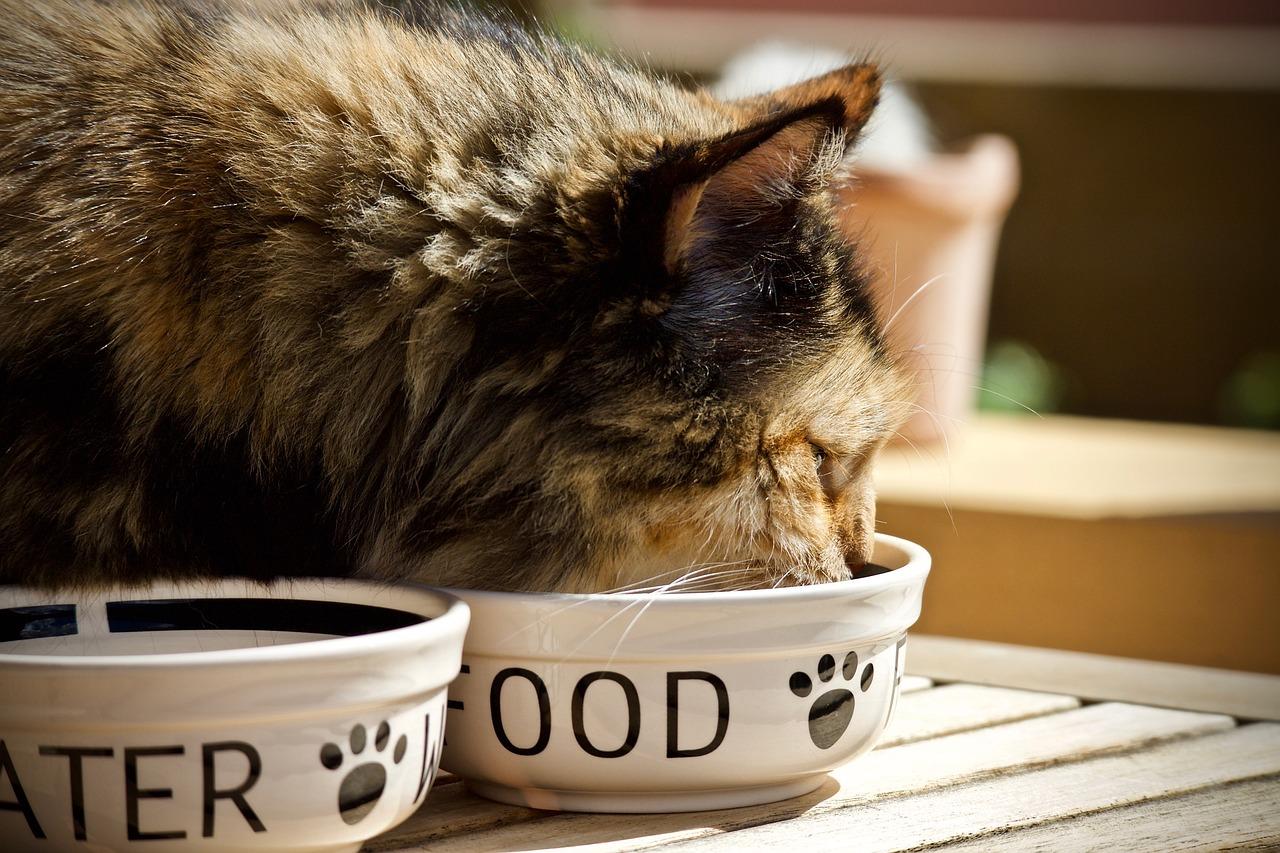Homemade Food for Cats



See files for Cats
Giving homemade food to your cat from time to time is a pleasurable experience for both you and your feline. Fresh fish especially replicates their natural diet in the wild and the cat will find it particularly appetizing. There are also many nutritional benefits which can be provided for the cat, as long as it is part of a balanced diet. Cooking homemade food for your cat can help you to understand their nutritional requirements and preferences. This is because it gives you the opportunity to really consider what they eat.
In this AnimalWised article, we will guide you in every step of the way so that you can create a special diet for your pet which it will be able to enjoy for several days. Read on to start making homemade food for cats. In this case, we provide a homemade fish recipe for your cat.
Can I give fish to my cat?
It is generally okay to give fresh fish to cats as part of their diet. Most cats enjoy the taste of fish and it can provide a good source of animal-based protein and essential fatty acids.
However, when giving fish to a cat as part of a homemade diet, there are a few important considerations to keep in mind:
- Cooked fish: it is recommended to feed cats cooked fish rather than raw fish. Cooking the fish helps eliminate potential parasites and reduce the risk of bacterial contamination, such as salmonella or listeria. Ensure that the fish is thoroughly cooked, without any seasonings, spices, or added ingredients that may be harmful to cats.
- Fish type: not all fish are suitable for cats. Some fish, such as tuna, can contain high levels of mercury which can be harmful if consumed in large quantities over time. It is best to choose fish that are lower in mercury, such as salmon or whitefish. Avoid feeding cats raw fish from sushi-grade sources, as it may contain parasites that can be harmful to cats.
- Balanced diet: while fish can be a good source of protein, it should not be the sole component of a cat's diet. Cats require a balanced diet that includes a variety of nutrients, including other animal-based proteins, fats, carbohydrates, vitamins and minerals. If you choose to incorporate fish into your cat's diet, ensure that it is part of a well-rounded and balanced meal plan.
- Portion control: fish should be given in moderation as part of a balanced diet. Excessive fish consumption can lead to a nutritional imbalance, particularly in the omega-3 fatty acids to omega-6 fatty acids ratio. It is best to consult with a veterinarian to determine the appropriate portion sizes and frequency of fish in your cat's diet.
Always monitor your cat for any signs of adverse reactions or digestive issues when introducing new foods, including fish. If your cat shows any signs of illness or discomfort, discontinue feeding fish and consult with a veterinarian. This is especially the case if observe symptoms such as the cat vomiting and having diarrhea.
How to cook a homemade fish recipe for cats
Well loved by cats and a great source of vitamins, omega 3 and omega 6, cooking fish for your cat can be a great idea. You should always use good quality, natural and fresh products to avoid causing any sort of problem for your pet's digestive system. Follow this simple recipe to make your pet happy.
Ingredients
- 500 g fish (such as tuna or salmon)
- 100 g peeled shrimp and mussels
- 100 g pumpkin
- A little bit of brewer's yeast
- Two eggs
Step-by-step guide for making the homemade fish recipe:
- Cut the pumpkin into small chunks and boil in unsalted water.
- Boil two eggs in a separate saucepan and crush them up once they are cooked. Include the shell, as this is ideal for extra calcium intake. You should pulverize the shell until it is a small as possible.
- Cook the prawns and mussels for a short time in a non-stick pan, without using any oil.
- Cook the fish the same way and cut into small pieces.
- Mix all the ingredients together: the diced fish, prawns, mussels, boiled pumpkin and the chopped eggs. Use your hands to help mix it all together.
Once the homemade fish recipe for cats is complete, you'll be able to store it in the freezer in Tupperware or plastic bags. This recipe will give you enough to last around 4 days for an average size cat. However, this will depend on factors such as their nutritional needs, weight and general health status.
If you intend on only feeding your cat homemade meals, pay a visit to your vet so that they can give you suggestions for the types of food you should vary and include in your pet's diet. This way, your cat will not suffer from any dietary shortages. If, on the other hand, you want to give it home-cooked meals only once in a while, it will be fine for you to alternate this food with cat food.

Giving homemade food to cats
When giving homemade food to cats, there are several important factors to consider to ensure their nutritional needs are met. Here are some key points to keep in mind:
- Consult with a veterinarian: before making any changes to your cat's diet, it's essential to consult with a veterinarian. They can provide guidance specific to your cat's health, age, and individual needs.
- Balanced nutrition: cats require a balanced diet that includes proteins, fats, carbohydrates, vitamins, and minerals. Homemade meals should provide a balance of these essential nutrients. A diet lacking in any essential nutrient can lead to health problems.
- Animal-based protein: cats are obligate carnivores, which means they require animal-based protein to thrive. Include high-quality protein sources like cooked poultry, fish, or lean meats in their meals. It's important to avoid excessive fat, skin, and bones.
- Avoid toxic foods: Some human foods are toxic to cats and should be strictly avoided. These include onions, garlic, grapes, raisins, chocolate, caffeine, alcohol and certain artificial sweeteners like xylitol. Avoid using ingredients that are known to be toxic to cats, such as cinnamon or garlic powder.
- Safe preparation and handling: ensure that the ingredients used in homemade cat food are fresh and handled safely to prevent contamination. Raw meat should be handled with caution to avoid the risk of bacterial contamination. Thoroughly cook all meat and eggs to kill potential pathogens.
- Portion control: cats have specific dietary requirements, including portion sizes. Overfeeding or underfeeding can lead to weight issues and nutrient imbalances. Consult with your veterinarian to determine the appropriate portion sizes for your cat's age, weight, and activity level.
- Variety and supplementation: providing a variety of ingredients can help ensure a broader range of nutrients in your cat's diet. Additionally, your veterinarian may recommend supplements to ensure your cat receives all necessary vitamins and minerals.
- Transitioning gradually: if you plan to switch your cat from commercial cat food to homemade food, it's essential to transition gradually. Sudden dietary changes can cause digestive upset. Mix increasing amounts of homemade food with the current diet over several days until the transition is complete.
Remember, homemade cat food should not be the sole source of your cat's diet unless specifically recommended by a veterinarian. It's generally advisable to use commercially prepared cat food that is formulated to meet their specific nutritional needs.
Age is also a very important factor when feeding cats is age. Newborn kittens have very specific needs when it comes to nutrition and diet. Take a look at how to feed a newborn kitten to learn more.

If you want to read similar articles to Homemade Food for Cats, we recommend you visit our Homemade diets category.






